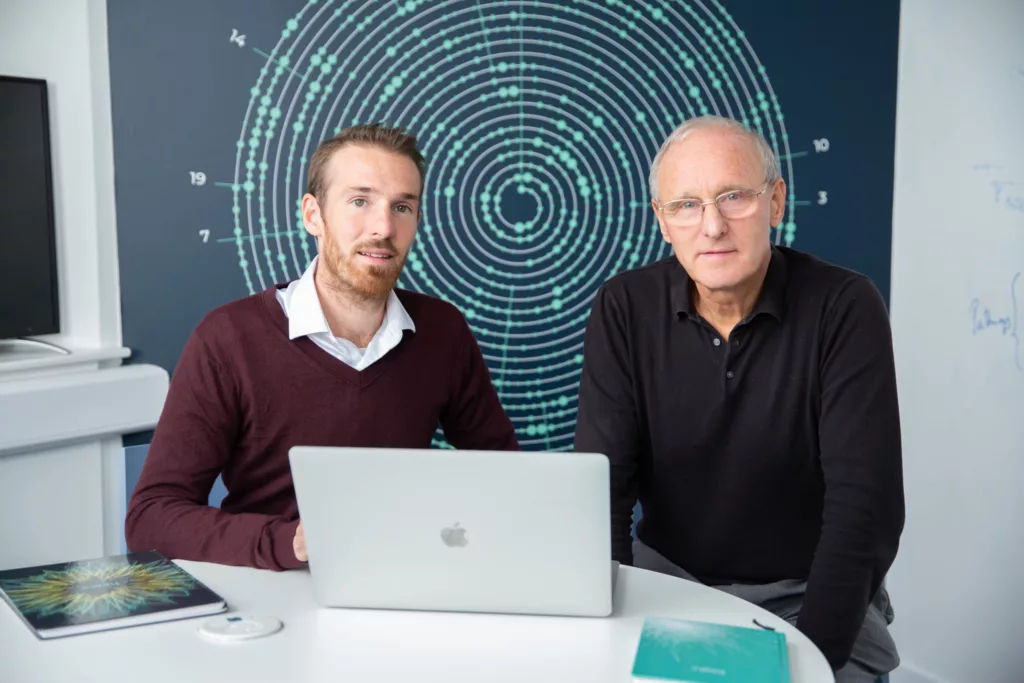
Top companies disrupting healthcare with artificial intelligence (2023)
Jo Best, a doctor and healthcare journalist, lists seven companies betting that artificial intelligence will be the key to unlocking innovation within the healthcare industry
Every technology company worth its salt has its sights on healthcare. And who can blame them: as an industry, it’s recession-proof, drowning in data, and in desperate need of tech to cut costs or boost efficiency.
Companies from the best-known tech giants to the nimblest startups are betting that artificial intelligence will be the key to unlocking innovation within the healthcare industry. For a list of the top disruptors in the healthcare AI market (in no particular order), read on or use the links below to jump to each section:
Of all the tech big guns currently eyeing the market, Google arguably has the most potential to shake things up.
Sure, you’ve already heard about the sexy stuff that DeepMind is up to with AI – planning radiotherapy, diagnosing eye disease, detecting kidney injury early – but that’s not where its AI will really get doctors’ pulses racing.
Google recently created a healthcare-themed version of PaLM 2, the unsurprisingly titled Med-PaLM2. The generative AI model has chewed through the mounds of unstructured data and may now be just what the doctor ordered. For example, it offers a virtual assistant that can automatically create pin-sharp digests of doctor-patient consultations. Or ask it to pick out useful morsels from medical records to create summaries of a patient’s recent hospital stay. Those are just two possible uses.
Med-PaLM2 is already being trialled by a handful of healthcare providers, helping medical professionals cut down on some of the back-breaking busywork that keeps healthcare workers wading through red tape instead of spending time with patients.
Google has the scale, the partnerships and the resources to throw at problems the healthcare sector has been yearning for technology to solve for decades.
Insilico Medicine
As any pharmaceutical rep will tell you, whether you want them to or not, it costs over $2 billion to get a new drug to market. And that’s just the ones that end up hitting pharmacy shelves. For every successful new drug, there are many more that fall by the wayside, poleaxed by problems with side effects, worries about safety, or simply because they don’t work.
Now the industry is embracing the idea of using AI for the hard bits of drug discovery in an effort to slash costs and failure rates alike.
Insilico Medicine’s Pharma.AI platform puts AI to work on all of the biggest bugbears in drug discovery. It uses onomics (think genomics, transcriptomics, proteomics and all the rest), patents, publications and clinical trial data to identify new targets for drugs to work on, find molecules that might have a therapeutic effect on those targets, and modelling how clinical trials might go in the real world.
The company already has a number of drug candidates at various stages of clinical testing, including for cancer and lung disease. Taking drug discovery out of the lab and into the server room could yield benefits for patients and pharmaceutical companies alike.
Healx
Rare diseases are anything but rare: one in 17 people have one, in fact. Rare diseases are also some of the costliest to treat. The world’s most expensive drug costs around $3 million and is targeted at a US patient population of roughly 1,500 people.
And now you know that drugs can take billions of dollars to get to market, you can see why the economics of developing new meds to treat rare diseases may not stack up.

Which is where Healx comes in. The Cambridge, England-based company is using AI to identify drugs that are already available for other, more common diseases to see which ones could be reused to treat rarer conditions too. (AI only gets you so far, of course; human scientists have to view the results and decide what goes on in clinical trials.) The first fruits of Healx’s work are already out there, with some novel therapies to treat Fragile X, a genetic neurodevelopmental disorder, now in clinical trials.
ChatGPT
You wouldn’t be surprised to see ChatGPT in any list of artificial intelligence disruptors but that doesn’t mean it shouldn’t be on this one. One US hospital has given OpenAI’s generative AI a test run with a series of theoretical patients to see what sort of investigations, potential diagnoses and treatment options it would opt for and how they stacked up against flesh-and-blood doctors. ChatGPT came up trumps 71% of the time.
While AI won’t be taking patients off doctors’ hands any time soon – as much because of issues of legal liability as anything else – any company that can make a solid decision support tool for healthcare professionals, particularly in resource-strained environments, would have a winner on its hands.
Vuno
Medical imaging always seemed like an area with a lot of potential for AI: lots and lots of data and a repetitive task that can fatigue humans tasked with scouring images for hours at a time. Startups and tech giants have been quick to leap onto the possibility of AI analysing certain scans to highlight to doctors where diseases may lurk. Now, there’s scarcely a body part or type of scan that doesn’t have a company building a dedicated AI for it. One of the companies in the field whose work stands out, however, is South Korean startup Vuno.

Vuno has a suite of AI products across key imaging types and body systems, from studying X-rays to determine bone age (a predictor of future fractures) to analysing CT scans for evidence of lung nodules that could turn out to be cancer. Not to mention scanning ECGs for signs of new or chronic heart conditions.
The company has already signed up big names for partnerships, including the Mayo Clinic for cancer diagnosis and prognosis. And Samsung has signed up to include Vuno’s AI algorithms in its X-ray scanners, suggesting that this startup’s products have the smarts and breadth to go the distance.
Dandelion Health
Healthcare staff and researchers have their biases, conscious or not. At best, this can lead to a one-size-fits-no-one approach to medicine; at worst, medical errors embedded into clinical practice. US not-for-profit Dandelion Health has a huge repository of clinical data and wants to put it to work highlighting bias in medical AI algorithms.
The company has anonymous data from 10 million patients, with information spanning imaging, notes, pathology, patient notes and more. AI researchers can test their own algorithms against a deliberately diverse data set, which includes the type of patients that might not usually make it into typical studies – for reasons of race or geography, for example – to show whether they’re as representative and reliable as their makers hope. Users get a confidential performance report. Best of all, it’s free.
It’s a simple idea and one the industry is sorely in need of as artificial intelligence starts to replace the stethoscope as the doctor’s favourite go-to tool.
Activ Surgical
Ask a surgeon whether they’re ultimately going to be replaced by a robot, and they’ll tell you a resounding no. Surgical robots are a tool to help surgeons, they will quickly add, not a replacement that will put them out of a job.
Activ Surgical has demonstrated the reality may end up being a little of both. In 2018, the company demoed a proof-of-concept fully autonomous surgery, with a robot independently suturing skin. Nowadays, the company is more focused on supplementing surgeons rather than supplanting them with its ActivSight product, which uses artificial intelligence, machine learning and AR to give surgeons extra information when they’re operating.
The system creates a visual overlay for the surgeon during a procedure, showing blood flow to the tissue that’s being operated on. Poor blood flow during operations can lead patients to have worse outcomes afterwards: it’s one of the causes of anastomotic leaks — where two tubes of tissue, such as two parts of a bowel, that have been sewed together during surgery later come apart. The aim of the ActivSight system is to reduce the likelihood of such leaks by keeping surgeons up to date with real-time blood flow during procedures.
ActivSight works as a bolt-on to existing surgical robotics and has already been rolled out across a number of pilot sites, with the first AI-assisted case happening in June. While the surgeons are still in charge, AI will increasingly be the bridge between humans and robots in the operating theatre.
Our coverage of top tech companies
We frequently write about the top tech companies in certain locations, working in specific industries or featured at an event. Here are some additional lists you might want to have a read through:
NEXT UP

Ryan Beal, CEO & Co-Founder of SentientSports: “Sports generate some of the richest datasets globally”
We interview Ryan Beal, CEO & Co-Founder of SentientSports, a startup using AI in fan engagement and athlete protection on social media.

Paris 2024: The greenest games ever
How the Paris 2024 Olympic Gamers organisers have lived up to their promise that this is the greenest Olympics ever

Salesforce, Workday team up to launch AI employee service agent
Salesforce and Workday have marked their new strategic partnership with the launch of an AI-powered assistant to handle employee queries.

